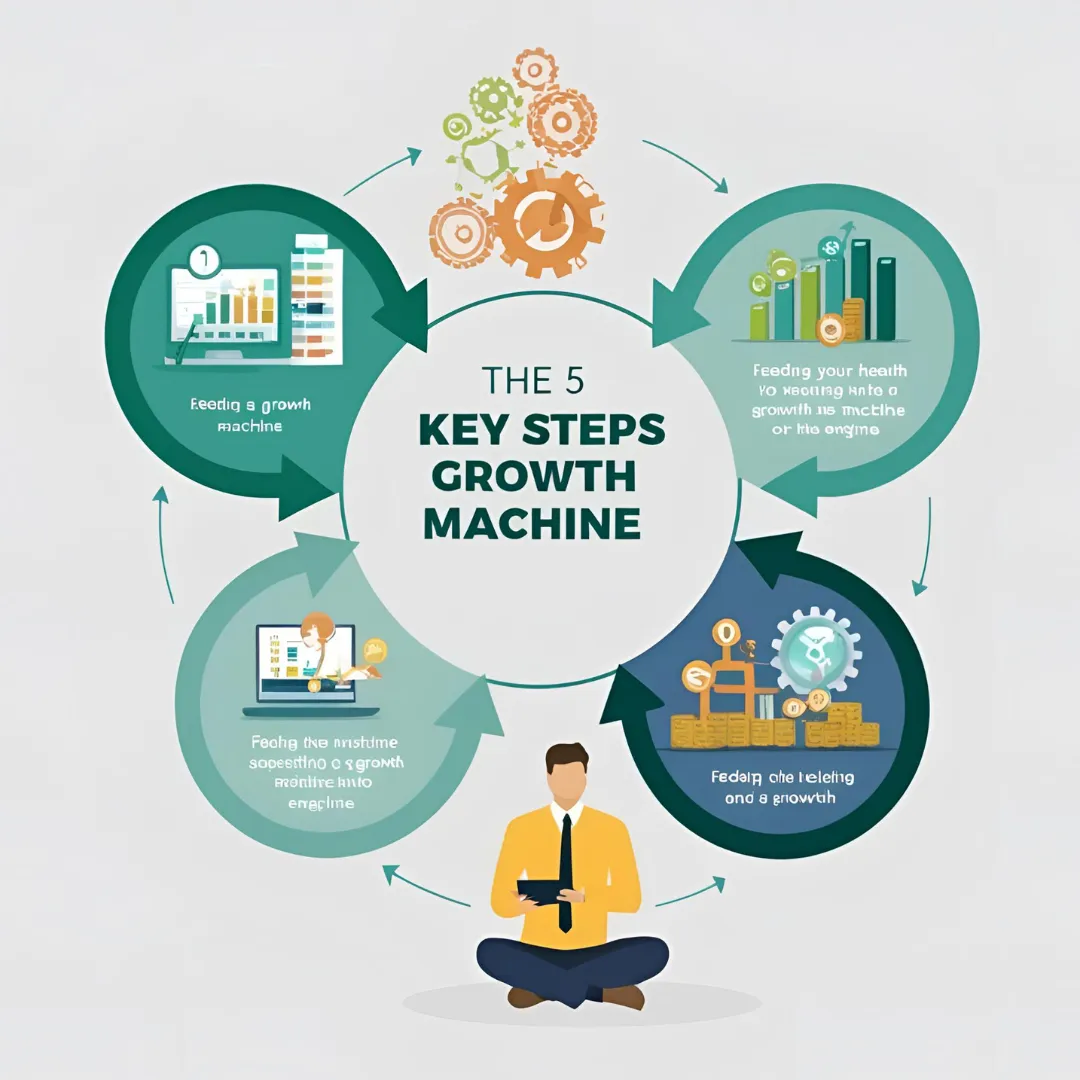
5 Key Steps to Building a Bulletproof Growth Strategy
Introduction
Business growth doesn’t happen by accident—it happens by design. If your approach to growth is purely reactive, you’re setting yourself up for inconsistent results. Instead, you need a strategic roadmap that outlines exactly how you’ll expand, innovate, and scale. A bulletproof growth strategy anticipates challenges, leverages your strengths, and focuses on high-impact opportunities.

In this guide, you’ll uncover the five key steps needed to create a growth strategy that stands the test of time and market shifts.
Why You Need a Bulletproof Growth Strategy
Focused Direction: Clear objectives keep your entire team aligned and motivated.
Predictable Outcomes: Strategic planning transforms guesswork into reliable forecasts.
Efficient Resource Allocation: Avoid wasting time or budget on tactics that don’t move the needle.
Long-Term Sustainability: A strong strategy ensures you can thrive through changing market conditions.
1. Conduct a Thorough Business Audit
Purpose: Understand where you stand right now—your strengths, weaknesses, opportunities, and threats (SWOT).
Audit elements:
Financial health: revenue streams, profit margins, cash flow
Operational efficiency: workflows, automation, team structure
Market position: competition, unique value proposition (UVP), customer feedback
Marketing effectiveness: lead generation, conversion rates, customer retention
Example: A fitness studio audits its membership retention rate and discovers that most cancellations occur around the 3-month mark, prompting them to create a new loyalty program to reduce churn.
2. Clarify Your Growth Goals
Purpose: Define exactly what growth means to you—revenue targets, market expansion, new product lines, etc.
How to set meaningful goals:
Make them SMART (Specific, Measurable, Achievable, Relevant, Time-bound)
Prioritize which goals will deliver the highest impact first
Ensure they align with your overall mission and vision
Example: A digital marketing agency sets a goal to increase monthly recurring revenue (MRR) by 25% within the next 12 months through retainer-based services.
3. Develop a Tactical Roadmap
Purpose: Lay out the specific initiatives, timelines, and responsibilities that will drive growth.
Steps:
Identify the key tactics needed (new products, marketing campaigns, partnerships)
Assign clear deadlines and owners for each task
Incorporate automation wherever possible to streamline execution
Example: A boutique clothing brand creates a 6-month roadmap to launch a new e-commerce line, setting clear tasks for product sourcing, website updates, and a social media campaign.
4. Implement Automation & Systems
Purpose: Consistency and scalability come from well-designed systems, not just effort.
Where to automate:
Lead generation and follow-up
Customer onboarding and retention
Financial management and invoicing
Example: A nutrition coach uses Ignite Business Software to automate lead capture, sending personalized SMS and email follow-ups that consistently convert new prospects into clients.
5. Measure, Refine, and Adapt
Purpose: A bulletproof strategy is agile—constantly evolving based on real data.
How to do it:
Track your KPIs regularly (weekly or monthly)
Identify and double down on what’s working
Address underperforming tactics or pivot as needed
Communicate updates and changes clearly to your team
Example: A SaaS startup holds monthly KPI reviews, noticing one marketing channel underperforms. They reallocate budget to the top-performing channel, significantly boosting user sign-ups.
Tools to Support Your Bulletproof Growth Strategy
Ignite Business Software – A centralized platform for CRM, marketing automation, and KPI dashboards.
Asana / Trello – Effective for task management and roadmap visualization.
QuickBooks / Xero – Track financial health and cash flow easily.
Google Analytics – Monitor website traffic, conversions, and marketing performance.
Zapier – Automate repetitive tasks across different apps.
Key Questions to Ask Before Finalizing Your Strategy
Do my growth goals align with both market opportunities and my unique value proposition?
Which tactics will yield the highest ROI given my current resources?
How can I leverage automation to ensure consistency and scalability?
Am I regularly reviewing KPIs and staying agile in my approach?
Benefits of a Bulletproof Growth Strategy
Clear Focus: Everyone knows what success looks like and how to get there.
Reduced Risk: A solid plan helps you avoid costly mistakes or misaligned efforts.
Scalable Systems: Growth becomes more predictable and less stressful.
Long-Term Resilience: A well-built strategy adapts to market changes, keeping you competitive.
FAQs
Q: What if my industry changes rapidly—can a strategy still be bulletproof?
A: Yes. The key is building agility and regular reviews into your plan, allowing quick pivots while maintaining your overall goals.
Q: Do I need a big budget to implement these steps?
A: Not necessarily. Many automation and tracking tools are affordable, and strategic planning is often more about clarity than money.
Q: How often should I update my growth strategy?
A: Regularly review metrics monthly or quarterly, updating the strategy as you see market shifts or new opportunities.
Conclusion
A bulletproof growth strategy gives your business clarity, focus, and resilience in an ever-changing market. By auditing your current state, setting meaningful goals, developing a tactical roadmap, automating operations, and continually refining based on data, you’ll build a thriving enterprise that can handle whatever challenges or opportunities come your way.
